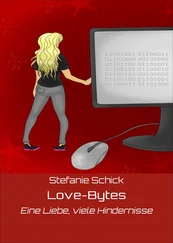Normal cells in a Petri dish will only form one layer, whereas cancer cells will form layer upon layer. Normal cells reproduce in a flat, orderly fashion, while cancer cells multiply in a three-dimensional, disorderly manner. Normal cells have a natural limit to the number of times they can divide, while cancer cells can go on dividing forever.
Immortality.
Kaoru was fully aware of the irony in the fact that immortality, the object of man's deepest yearnings from time immemorial, was in the possession of this primeval horror, this killer of men.
As if to demonstrate their three-dimensional nature, his father's cancer cells had bubbled up into a spheroid. Every time Kaoru looked they had taken on a different shape. Originally, these had their source in normal cells in his father's liver, but now it might be more appropriate to see them as an independent life form. Even as their erstwhile host faced his crisis, these cells greedily enjoyed eternal life.
Kaoru set this dish full of concentrated contradiction into the phase contrast microscope. Its magnification only went up to x200, but it allowed easy colour imaging. He could only use the scanning electron microscope when he had time to spare.
The cancer cells, these life forms which had gone beyond any moderating influence, presented a peculiar sight. Perhaps there was something actually, objectively grotesque about their appearance, or perhaps they only looked grotesque to him because of his preconceptions about them as usurpers of human life.
Kaoru struggled to abandon this bias, his hatred of the agent of his father's suffering, as he observed the sample.
Raising the magnification, he could see that the cells were clumping together. The long, spindly, translucent cells grew as a thicket, stained a thin green. This wasn't their natural colour; the microscope had a green filter attached.
Normal cells would have been evenly distributed in a flat, orderly fashion, with no one part sticking out, but these cancer cells revealed, here and there, a thicker green shadow.
He could see them clearly: a multitude of points, bubbling up roundly, shining. These were cells in the process of dividing.
Kaoru changed the dish under the microscope several times, comparing the cancer cells to normal cells. The surface difference was readily apparent: the cancer cells displayed a chaotic filthiness.
But the surface of the cells was all he could examine: an optical microscope wasn't powerful enough to show him their nuclei or DNA.
Still, Kaoru gazed on untiring. His heart was heavy with the knowledge that he was wasting his time: just what was he going to learn looking at them from the outside? Still, even as he cursed himself for doing so, he examined the external part of each and every one of them.
The cells all looked alike on the surface. Thousands of identical faces, all in a row.
Identical faces.
Kaoru raised his face from the microscope.
Totally out of the blue, he had compared the cells to human faces. But that was what they looked like: the same face thousands of times over, gathering and sticking together in a clump until they formed a mottled mass.
Kaoru had to look away for a while.
That image came to me intuitively. Was it for a reason?
That was the first question to consider. His father had taught him to pay attention to his intuition.
It often happened that Kaoru would be reading a book or walking down the street and suddenly a completely unrelated scene would present itself to his mind's eye. Usually he didn't inquire into the reason. Say he was walking down the street and saw a movie star on a poster: he might suddenly remember an acquaintance who resembled the movie star. If he didn't register having seen the poster, which was entirely possible, it would seem as if the image of his acquaintance had come to him out of nowhere.
If it was a kind of synchronicity, then Kaoru wanted to analyze it to find out what had synched up with what. He'd been looking at cancer cells under x200 magnification, and something had been triggered so that the cells looked to him like human faces. Now: did that mean something?
Pondering it brought no answer, so Kaoru returned his gaze to the microscope. There had to be something which had elicited the comparison in his imagination. He saw narrow cells piled up in three dimensions. Little glowing globes. Kaoru muttered the same thing as before.
No doubt about it, they all have the same face.
Not only that, but it was clearly not a man's face, not to his imagination. If he had to choose he'd say it was somehow feminine. An egg-shaped, regular face, with smooth, even slippery, skin.
This was weird. In all the times he'd looked at cells through the phase contrast microscope, he'd never thought they looked like human faces.
Kaoru was in a hospital room face-to-face with Ryoji, but his mind was on the sounds coming from the bathroom. Reiko had been in there for some time, with the water running. She wasn't showering; maybe she was washing underwear. While tutoring Ryoji he'd seen Reiko hurriedly gathering up underwear that had been hung up to dry in the room.
Distractedly, Kaoru set about answering Ryoji's questions about his father's condition.
He gave him a brief rundown, but Ryoji's body language said he wanted to hear more. Maybe he wanted to sketch in the future of his own illness based on what he could learn of Kaoru's father's.
Kaoru stopped the conversation before Ryoji could start to guess that the cancer had spread to his father's lungs. Partly he hesitated because he thought the knowledge might have a negative influence on Ryoji, but partly he simply didn't want to say it out loud.
When the cancer had become heavy on his lungs, Hideyuki's face had started to betray weakness; he'd started to talk about what would happen after he was gone-to talk about entrusting Kaoru with his mother's care.
Look after Machi, okay?
At the sight of this weakness, Kaoru was seized with a desire to deliver the full force of his anger upon his father. And just how am I supposed to comfort Mom after you die, he wanted to say. Quit laying these impossible tasks on me!
Now as he sat talking about his father's condition with Ryoji, also lying flat in a hospital bed, his father's image came to him, and he had a hard time speaking. Not noticing that Kaoru had fallen silent, and insensitive to the reason why, Ryoji produced a forced-sounding laugh.
"Now that I think about it, Kaoru, I talked to your father once."
They'd both been in and out of the hospital with the same illness. No matter how big the hospital, it wasn't unlikely that they'd come into contact.
"Really?"
"He's the tall guy in 7B, right?"
"That's him."
"He's pretty strong. He's always frisky, slapping the nurses' butts and stuff like that."
That was Hideyuki alright. He'd achieved a certain notoriety among the patients for the cheerful way in which he battled his illness, never seeming to lose heart. They said that seeing him act so cheerful, so unafraid of death, made it possible for them to hang on to the hope necessary to gamble on long odds. He'd lost his stomach, his large intestine, and his liver, and now it looked like the cancer had spread to his lungs: his time, it appeared, had come. But regardless, in front of other people he put on a display of high spirits he couldn't possibly feel. The only exception was when he was alone with Kaoru: then he allowed his weak side to show…
"What about your Mom, Kaoru? How's she doing?" Ryoji asked, without much evident concern.
Reiko came out of the bathroom, spread the laundry out on the extra bed, and then disappeared back into the bathroom.
Читать дальше
Конец ознакомительного отрывка
Купить книгу
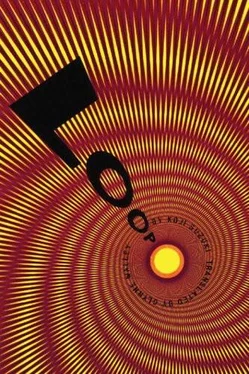
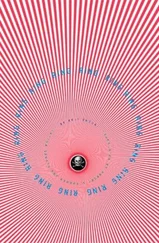

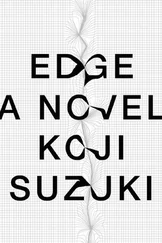

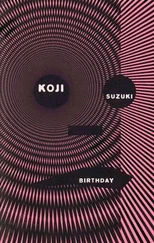
![Yuriy Ktitorov - Sasha [Love]. Part 1](/books/459553/yuriy-ktitorov-sasha-love-part-1-thumb.webp)
